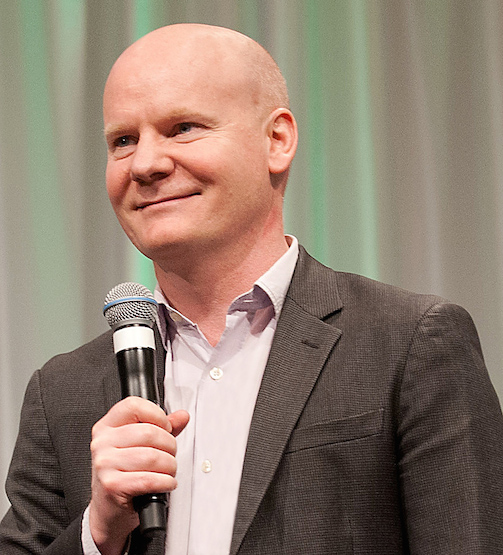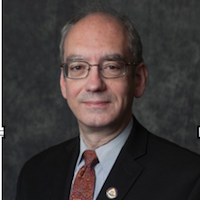Naropa University President Chuck Lief recently sat down at the Mindful Leadership Summit with some of today’s most influential leaders in business, the nonprofit sector, government, and within the mindful movement to ask what mindful leadership means to them. Today’s conversation is with Tom Gardner, the co-founder of Motley Fool, a multimedia financial-services company reaching millions of people each month. Their mission is simple: help the world invest better. The company’s name was taken from Shakespeare, whose wise fools both instructed and amused, and could speak the truth to the king—without getting their heads lopped off.
~
What is mindful leadership?
Mindfulness is being intentional and deliberate in the choices that you’re making. Mindfulness is also about being communicative and aware, and meeting the needs of your stakeholders. And third, it’s about being purpose-driven, where you have clear values and you hold yourself accountable to those values and with your stakeholders.
John Mackey (CEO of Whole Foods) is on our Board, and we’re working closely to create a planning process that will recognize and address the needs of all our stakeholders in a very mindful and responsible way.
~
Motley Fool now has more than 325 employees. How do you get community buy-in with a mindful approach to your work, and how is it important to you?
It’s the most basic starting point to our work. I’m reminded of a story that when [former U.S. Senate Majority Leader] George Mitchell took over as the U.S. envoy for peace in Northern Ireland, he asked that everyone be included in the discussion and have a seat at the table. On the first day, he asked everyone to identify what they all believed in, and one of the items agreed to was the belief that no child under the age of five had a stake in the current conflict. Therefore, Senator Mitchell and the participants reasoned, there was a basic need to protect every child under five and to ensure that this most basic principle was not violated. Getting people to agree on common principles is an incredibly powerful mechanism to get buy-in.
~
Is it a fair assumption that people coming from business school might not yet be ready for mindful leadership or the importance of engaging stakeholders? How does Motley Fool provide that guidance internally?
I think it’s less true than it was 10 or 15 years ago. The coming group of millennials is a lot more mindful than earlier generations. Maybe it has something to do with 9/11 and coming of age at that time, or maybe they’re assigning more meaning to what they’re doing than people who came before them. We find that it’s not much of a challenge to get people to understand the needs of our stakeholders, because this is just good business sense.
In our case, we work to help the world invest better, and one way that we will be doing this more will be by introducing a fully automated financial life planning tool that will really demystify the process and help people make more informed decisions about their financial health on issues from student loans to retirement funds.
~
So how does this process not encourage “investment by abdication,” or in other words, that it will happen in the background even if I ignore it?
I was just at a tech conference in San Francisco, and somebody mentioned that in every business, the majority of stakeholders are casual users. The moment you embrace this concept is the moment of enlightenment for how you have to structure your business. You need to recognize that for many people investment is a passion, for others it’s a hobby, and certain people want it done for them. The ones who want it done for them are the ones who tend to get taken advantage of the most. So for us, this decision is a very mindful one in that we intend to work closely with our stakeholders to ensure maximum impact in a very responsible way.
When the Reach toothbrush was first introduced, it was really the first time a toothbrush had been designed with the users in mind, and so they incorporated research on how people actually brushed their teeth. Small design elements like the way the handle was shaped or how the bristles were placed were incorporated to help people brush better and reach more areas of the mouth. We need to think of investment advice in this way; we have to help people reach their goals in ways that meet their comfort level.
~
You take on a lot of responsibility for people’s financial decisions, and you want to be worthy of that trust. To what extent are there some social screens on whether a company is mindful in its operations or treatment of employees?
This is a different way of viewing the solution. We want people to tell us what they like and don’t like in terms of investing in a company, like whether a company makes cigarettes…rather than having us tell them. But I don’t think that we’re pushing that as an important part in the process in terms of being mindful and identifying what’s inside someone’s circle of beliefs.
I have my conscious capitalistic filter, and I’m not doing it from the perspective of integrity as defined by morality, but integrity as structural, like a building. There’s a huge overlap between them, but essentially if you’re investing in a company that is making people unhealthy, then people should have access to that information to make the best decisions for themselves. The world is getting smarter. People can connect in real-time about what’s good for them and for the planet, and what isn’t.
~
Check out more interviews from this series as they become available:
10 Minutes With: Sharon Salzberg.
10 Minutes With: Congressman Tim Ryan.
~
Love elephant and want to go steady?
Sign up for our (curated) daily and weekly newsletters!
~
~
Author: Chuck Lief
Editor: Travis May
Photo: Courtesy of Author











Read 2 comments and reply